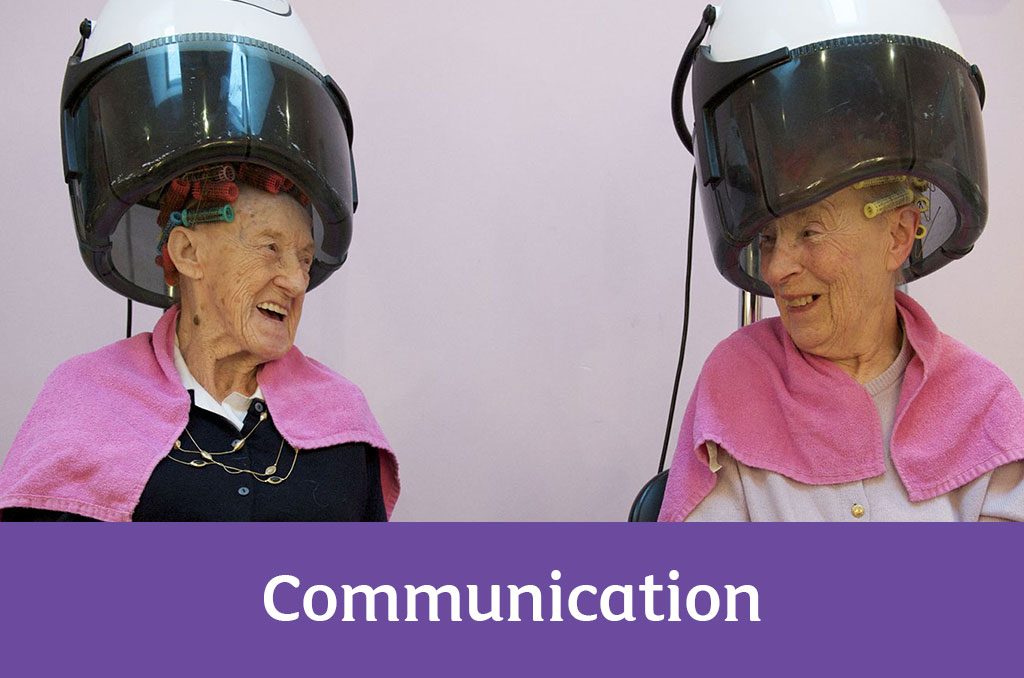What is dementia?

Welcome to the first section in the DSDC’s ‘bite size’ information series.
These pages represent the collective knowledge of the dementia experts at the Dementia Services Development Centre. Here, we draw from our own experiences as practitioners, care staff, and researchers to create a resource for anyone who wants to learn more about dementia.
What is Dementia?
Although you might hear people talk about dementia as if it was a single illness that affects everyone in the same way, this isn’t really accurate. While this can be helpful, it can also be confusing.
In reality, it is more helpful to think of dementia as an ‘umbrella’ term, which covers over 200 different diagnoses. The two most common forms of dementia are Alzheimer’s Disease and Vascular Dementia.
Alzheimer’s Disease
Alzheimer’s Disease is the most common type of dementia in the UK. It is estimated that over 520,000 people across the UK are currently living with Alzheimer’s Disease, with the number expected to rise in the coming years.
People with Alzheimer’s Disease often find it difficult to remember details, like where they parked the car. Some people with Alzheimer’s Disease also find it difficult to find their way around familiar locations, or struggle with organising and keeping up with appointments or events. Learn more here.

Vascular Dementia
Over 150,000 people in the UK currently live with a diagnosis of Vascular Dementia, making it the second most common dementia diagnosis in the UK. Unlike Alzheimer’s Disease, where little is known about what causes the disease, we know more about Vascular Dementia. Vascular Dementia occurs where diseased blood vessels restrict blood supply to the brain. Because the brain relies on the vascular system to bring nutrient rich, oxygenated blood to different areas of the brain, problems in the vascular system and can result in the death of brain cells over time.
People with Vascular Dementia can experience difficulties with their memory, with thinking and with reasoning. Because Vascular Dementia can damage different parts of the brain in each person, it is difficult to predict how it will affect an individual. As a result, people with vascular dementia may also experience changes in their moods, becoming more emotional, anxious, or depressed alongside other difficulties with memory, planning, and navigation. Learn more about Vascular Dementia here
Together, Alzheimer’s Disease and Vascular Dementia account for almost 79% of all dementia diagnoses, however there are many more types of dementia, including Dementia with Lewy Bodies, Fronto-Temporal Dementia and Young Onset Dementia. As each type of dementia can affect the brain in different ways for different people, it is important to remember that there is no single way to live with dementia, and that each person’s experience of living with dementia will be different.
If you want to learn more about a specific kind of dementia, one place to start is with the guides produced by the Alzheimer’s Society. We have provided links to their resources for the dementias above, but you can find out more here or to learn about rarer kinds of dementia, here.
Dementia and the Brain
Even though different dementia diseases affect each person differently, it is possible to talk more generally about how dementia affects the brain and why it can cause problems for those living with dementia.
As humans, our brains act as vital control centres for the rest of our body. Everything that we do, from breathing, to driving, to Sudoku is made possible by different areas of our brain interacting work together to make it happen. Unfortunately, this means that damage to any area of the brain can have wide-reaching effects as areas of the brain find it increasingly difficult to ‘talk’ to one another.
This is why it is important to remember that someone living with dementia is not just living with a memory problem. Instead, the symptoms of dementia will be experienced differently by each person, depending on which areas of their brain are involved.

How Can Dementia Affect Us?
When we think about dementia, it is easy to focus upon the memory related symptoms, such as having a problem remembering names, places, or events. While most people who live with dementia will experience problems with their memory, it is worth keeping in mind that different people with dementia may also experience other challenges.
For example, some people with dementia may also find themselves becoming disorientated, and find it easier to get lost in familiar places. They may find it difficult to concentrate, which can make it challenging to learn new things, or follow what is happening in a conversation or on TV.
People with dementia also talk about how it can sometimes be difficult to think quickly with their dementia. For example, Wendy Mitchell, who lives with dementia, talks about dementia as a ‘fog’ in her book Somebody I Used to Know . Some people with dementia might find it difficult to follow a sequence, such as a recipe or shopping list, while others struggle with making judgement calls and reasoning.
One of the common difficulties people with dementia talk about is to do with communication- specifically, they talk about how it can be difficult to take part in conversations when the person they are speaking to doesn’t allow long enough for them to respond.
To think about why people with dementia might require longer to think about what is being said to them, and what they would like to say back, it is useful to use the analogy of a bridge.

In this picture, you can see that while the bridge is still mostly present, it is missing several boards, making crossing difficult. To cross to the other side of the river, therefore, a traveller might need to take longer on the bridge, or find another way around entirely.
When we talk to people with dementia, it is important to remember that they are living with a condition that causes damage to their brain. When we ask a question, the person with dementia may have to process this information in a different way than they used to, to ‘work around’ the damaged areas of their brain. This takes longer, just as it takes longer to cross a broken bridge than one that is in good repair! In such moments, it is important to be patient, and allow time for the person with dementia to think about what you have said, and what they might like to say back.
It is important to remember, however, that there are some cases where the person with dementia may not be able to ‘cross the bridge’: if the water is higher than usual (if they are unwell, tired, or upset, for example), this may make crossing impossible at that moment.
Explore more …





